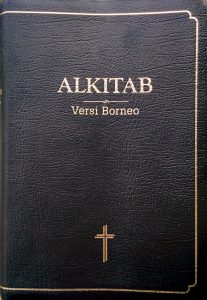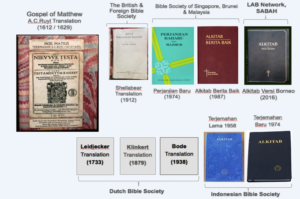 |
 |
Semantik Kalimah Allah*
Kita mendekati pembahasan kata “Allâh“ dari sudut bahasa. Kata “Allah” berasal dari dua kata: al, dan ilah, Al adalah kata sandang (band, bahasa Inggeris; the), dan ilah bererti: yang kuat, dewa. Dalam bahasa-bahasa Semit,kata ini menunjuk pada kuasa yang ada di luar jankauan manusia, yaitu pada dewa. Sudah di masa pra-Islam, al-ilah disambung menjadi Allah. Dan dalam agama orang-orang Arab pra-Islam, kata ini digunakan untuk menunjuk pada dewa yang paling tinggi di antara dewa-dewa yang lain yang masing-masing mempunyai namanya sendiri. Namun kata Allah itu sendiri bukan nama, seperti di atas diterangkan. Dengan demikian, kata Allah sudah ada dalam zaman jahiliyya. Ia bukan ciptaan orang Islam ia juga tidak baru muncul dalam Al-qur’an Alkarim, melainkan ia merupakan kata biasa dalam bahasa Arab lepas dari ikatan dengan salah satu agama tertentu. Continue reading “Semantik Kalimah Allah”